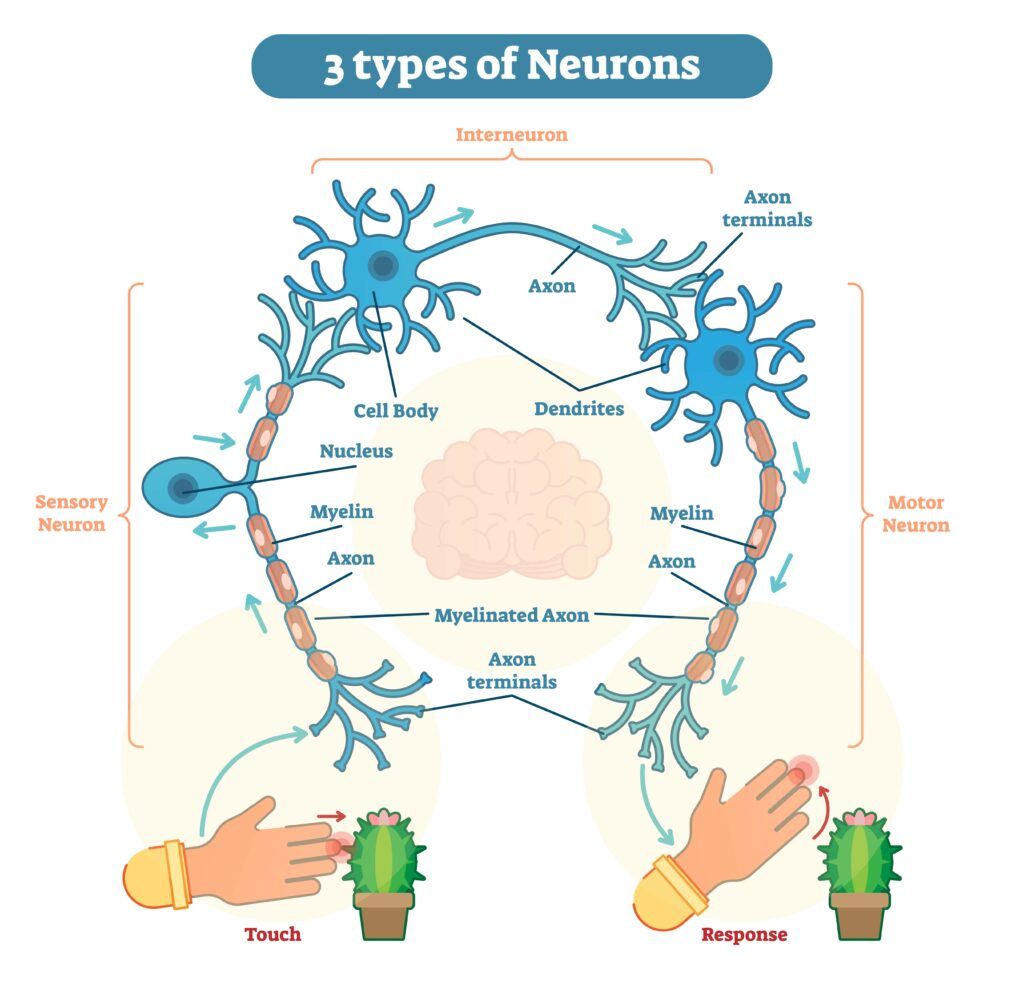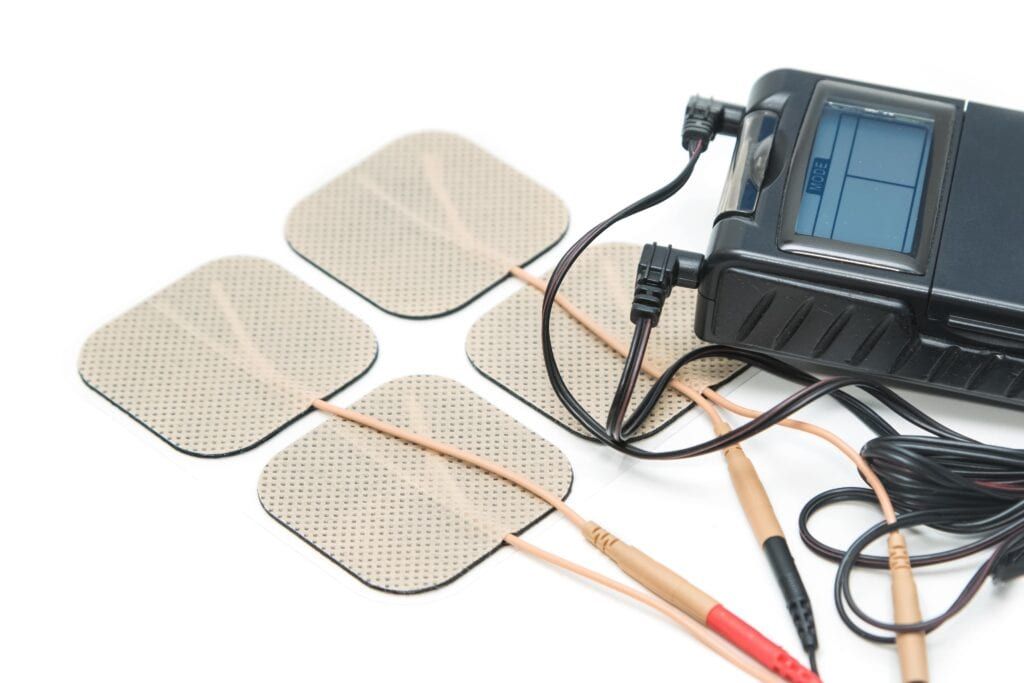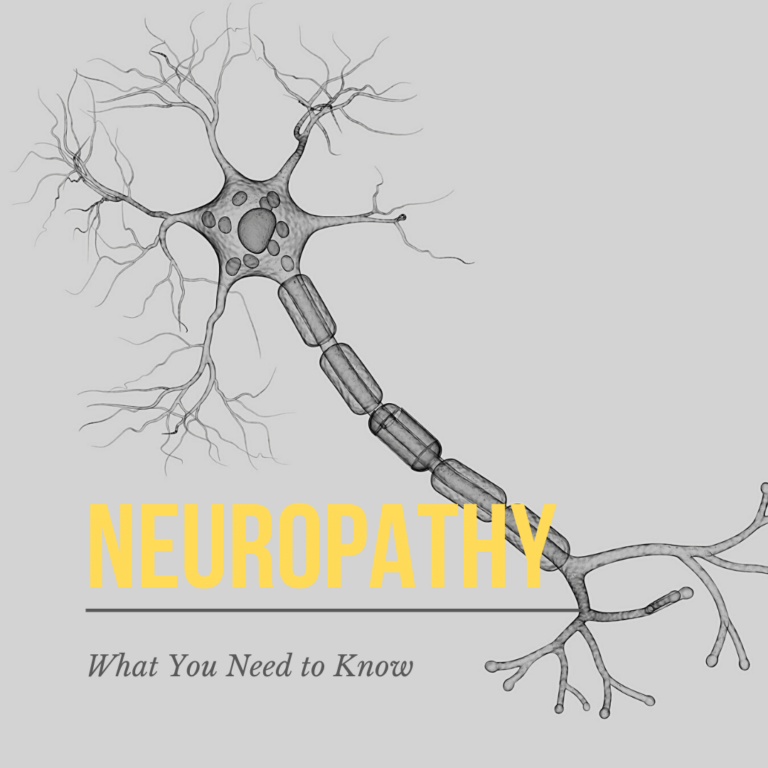Do you experience tingling, numbness, or weakness in your hands or feet? If so, you may be suffering from neuropathy. Neuropathy is a condition that affects the peripheral nervous system. The peripheral nervous system is responsible for sending messages from the brain and spinal cord to the rest of the body. When it is affected by neuropathy, those messages are not sent correctly, which can lead to a variety of symptoms. In this blog post, we will discuss what you need to know about neuropathy.
What is neuropathy?
Neuropathy is a condition that causes dysfunction in the peripheral nerves. The peripheral nervous system is responsible for sending messages from the brain and spinal cord to the rest of the body. When it is affected by neuropathy, peripheral nerve cells are damaged or destroyed, which disrupts communication between the brain, as well as other nerves. This generally causes numbness, tingling, muscle weakness, and pain in the affected area.
Oftentimes, the severity of these symptoms depends on the number of nerves affected. Mononeuropathy affects a single nerve or nerve type, while multifocal neuropathy affects multiple nerves in specific areas. Polyneuropathy is the most common form of neuropathy, and it affects many nerves throughout the body.
Symptoms of neuropathy can also depend upon what type of peripheral nerve is affected. There are three types of peripheral nerves: sensory, motor, and autonomic.

- Sensory nerves are responsible for sending information about touch, temperature, pain, and other sensations to the brain. When they are damaged, you may experience numbness or tingling. You may also have trouble knowing where your limbs are in space, or you may feel like you are wearing gloves or socks when you are not.
- Motor nerves are responsible for controlling muscle movement. When they are damaged, you may experience weakness or paralysis. You may also have trouble swallowing or speaking.
- Autonomic nerves are responsible for controlling automatic functions of the body, such as blood pressure, heart rate, sweating, and digestion. When they are damaged, you may experience problems with blood pressure regulation or trouble digesting food.
Since there are a few different factors that can affect neuropathy, symptoms can vary and can include one or more of the following:
- Tingling
- Numbness
- Weakness
- Pain
- Difficulty walking or balancing
- Trouble swallowing or speaking
- Problems with blood pressure regulation
- Difficulty digesting food
If you are experiencing any of these symptoms, it is important to see a neurologist for diagnosis and treatment.
What causes neuropathy?
There are many possible causes of neuropathy. In some cases, there may be no known cause of neuropathy. In other cases, neuropathy can be attributed to:
Diabetes:
Diabetes is the #1 cause of neuropathy and it is estimated that 60-70% of people with diabetes experience neuropathy. This is because high blood sugar can damage the nerves. Neuropathy associated with diabetes is called small fiber neuropathy and it is characterized by a burning sensation in the hands and feet.
Infection:
Viruses or bacteria can cause inflammation that damages nerves. Infections that can cause neuropathy include: Lyme disease, chicken pox, hepatitis C, West Nile virus, syphilis, leprosy, shingles, Epstein-Barr virus, and HIV.

Trauma:
A physical injury, such as a car accident, can damage nerves. In some cases, repetitive stress or compression to a particular nerve can also lead to nerve damage. For example, carpal tunnel syndrome.
Alcohol:
Heavy alcohol use can damage the nerves. This is because alcohol interferes with vitamin B12 absorption, which is essential for healthy nerve function. Alcohol may also damage peripheral nerves directly.
Autoimmune Disease:
The body’s immune system may attack healthy tissue, including nerves. Some autoimmune diseases that can cause neuropathy include: Guillain-Barré syndrome, Chronic inflammatory demyelinating polyneuropathy, lupus, rheumatoid arthritis, and Sjogren’s syndrome.
How is neuropathy diagnosed?
A neurologist will start by taking a medical history and doing a physical examination. The physical examination often includes a neurologic exam, which tests reflexes, muscle strength, coordination, and sensation. The neurologist may also order blood tests to look for evidence of diabetes or other conditions that can cause neuropathy. In some cases, they may also order imaging studies, such as an MRI or CT scan, to rule out other causes of symptoms.
To determine the location and severity of nerve damage, your neurologist will likely recommend an electrodiagnostic assessment (EDX). This consists of two diagnostic tests:
- Nerve Conduction Study (NCS): In this test, electrical impulses are passed through the nerve to assess how well it is functioning. This test can help determine if a nerve is damaged and if so, how badly.
- Needle Electromyography (EMG): This test measures the electrical activity of muscles. It can help determine if the cause of weakness is due to a problem with the nerve or muscle.
What are the treatments for neuropathy?
The treatment for neuropathy will depend on the underlying cause, as well as the location and severity of nerve damage. In some cases, no treatment is necessary. For example, if neuropathy is caused by an infection, it will often resolve once the infection is treated.
In other cases, treatments may be necessary to relieve symptoms and prevent further damage. Treatments for neuropathy include:
Medications:
There are a variety of medications that can be used to treat neuropathy, including pain relievers, anti-seizure drugs, antidepressants, and topical medications.
Vitamins:
Vitamin B12 shots or supplements can be helpful for neuropathy caused by vitamin B12 deficiency.

Exercise:
Exercise can help to reduce pain and improve nerve function by improving strength, balance, and range of motion. However, it is important to start slowly and gradually increase the intensity of your workouts.
Transcutaneous Electrical Nerve Stimulation (TENS):
This is a form of electrical stimulation that is used to relieve pain. A TENS unit delivers small electrical impulses to the nerves through electrodes placed on the skin. This disrupts pain signals and prevents them from reaching the brain.
Surgery:
In some cases, surgery may be necessary to relieve pressure on a nerve or to repair damage. This is generally the case when the cause of neuropathy is due to nerve compression. Conditions such as herniated discs, tumors, or nerve entrapment disorders tend to respond well to surgical intervention.
In Conclusion
In this blog post, we have discussed everything you need to know about neuropathy. We have defined neuropathy and explained how it affects the peripheral nervous system. We have also listed and discussed the causes of neuropathy. Finally, we have discussed the diagnosis and treatment of neuropathy. If you are experiencing symptoms of neuropathy, it is important to see a neurologist for diagnosis and treatment. Neuropathy is a serious condition that can cause significant pain and disability. However, with proper treatment, many people with neuropathy are able to live normal, healthy lives.

Dr. Kashouty, a diplomate of the American Board of Psychiatry and Neurology (ABPN), practices general neurology with fellowship trained specialization in clinical neurophysiology. Dr. Kashouty finds the form and function of the nerves and muscles the most interesting part of neurology, which is what led him to specialize in neurophysiology with more emphasis on neuromuscular conditions. He treats all neurological diseases, but his main focus is to treat and manage headaches, movement disorders and neuromuscular diseases.




